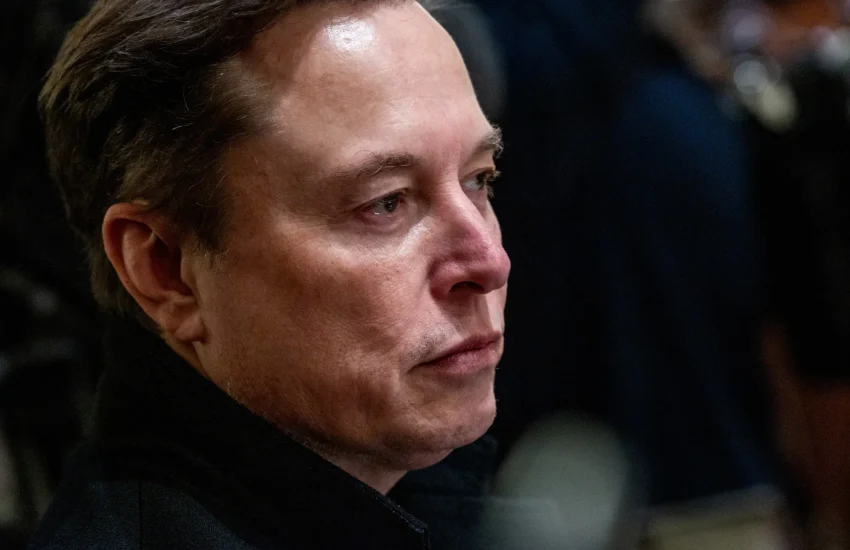
Thomas L. Friedman’s April 23, 2025 New York Times op-ed, “How I Describe Myself Politically These Days,” is an encapsulation of the cognitive dissonance that plagues center-right punditry in the twilight of American democracy. Published in a moment of spiraling institutional decay, judicial rollback of rights, rising right-wing political violence, and executive authoritarianism, Friedman delivers a dispatch from the comfortable padded seat of corporate futurism.
Friedman’s column is emblematic of a wider phenomenon among establishment pundits: the desperate search for a “third way” that allows them to critique Trumpism without embracing genuine progressive alternatives. His newly minted political identity as a “Waymo Democrat”—centered around self-driving taxis as America’s salvation—reads less like serious political analysis and more like a shallow branding exercise designed to position himself above the messy realities of political struggle at precisely the moment when that struggle is most necessary.
“I struggle these days whenever someone asks me for my political affiliation. But if you really force me, I’d describe myself as a ‘Waymo Democrat.’ Waymos are the self-driving electric taxis started by Google. My party’s bumper sticker would read, ‘A chicken in every pot and a Waymo in every city.'”
Friedman’s opening reveals his fundamental misdiagnosis of America’s crisis. And it is exactly as cringe as it sounds—but it’s also an abdication of seriousness. We are not in an age of whimsical metaphor. We are in an age where the Supreme Court is functionally captured, where the president refuses to commit to any future democratic transfer of power, where vigilantes enforce ideology with guns and governors outlaw history. And Friedman’s political identity crisis is best resolved, apparently, by invoking a Silicon Valley taxi service.
Friedman then attempts a ham-fisted both-sides flourish:
“Trump today is offering America a spectacularly wrong answer… to a very valid question: How do we get more Americans making stuff again?”
It is a recurring Friedman tic—praise the question, scold the answer, gesture toward the middle. But he fails to recognize that Trump isn’t just giving a wrong answer to a good question; he’s rigging the exam, torching the school, and criminalizing the teachers.
Friedman then gestures supportively at Sanders and AOC, only to undercut them with a false dichotomy:
“But when I listen to A.O.C. and Sanders, I don’t hear them solving for the future. So much of what they are about is lazily bashing billionaires…”
Lazy is a rich word coming from a columnist who has been repackaging the same centrist fantasy for two decades. What Sanders and Ocasio-Cortez actually do is fight for structural reform, environmental justice, and economic equity—real future-facing policies that address the climate crisis, monopolistic tech giants, and collapsing labor power. But Friedman hears only complaint, because he cannot see politics outside the lens of elite consensus.
The meat of his solution? Government-subsidized expansion of the robotaxi industry:
“I can’t think of a more obvious moonshot project to spur advanced manufacturing in America than making it our goal to have Waymos… in every city in America.”
Here, Friedman performs a bait-and-switch. The issue he names—deindustrialization and job loss—is not solved by gig-economy robotics. In fact, much of the labor displacement he hopes to resolve is exacerbated by these very technologies. Autonomous vehicles threaten to eliminate not just taxi drivers, but freight haulers, delivery workers, and public transit operators. Replacing that with a few high-paying engineering jobs is not revitalization. It’s consolidation.
Even when he gestures at policy, he slips into bizarre corporatist fantasy:
“We would tell Harvard… any student graduating with a degree in A.I. … should get handed a refund check for their entire tuition…”
“We would repurpose [the Department of Education] as the Department of Engineering and Innovation — D.E.I. for short. Has a nice ring to it.”
This is not vision. This is venture-capital flavored fanfic. It is a techno-feudal fever dream where citizenship is conditional on skillsets and governance is reduced to business incentives. There is no discussion of worker power, unionization, or climate transition. The future, in Friedman’s eyes, is only available to those with STEM degrees and investor funding.
Worse still is the rhetorical sleight-of-hand he attempts with Trump:
“To accelerate this industry further, Waymo Democrats would do everything Trump is doing maliciously today — but do it productively.”
The euphemism is breathtaking. Friedman takes the language of authoritarian sabotage—tariffs, state coercion, institutional gutting—and scrubs it with a veneer of innovation. He doesn’t reject Trump’s authoritarian methods. He just wants to redeploy them more efficiently. It is the technocrat’s dream: illiberal power with liberal branding.
What this article ultimately reveals is the center-right pundits’ inability to reckon with fascism. They see chaos, but refuse to name its source. They see collapse, but think the answer is marketing. The danger isn’t just Trumpism—it’s the intellectual softening of people like Friedman, who think America can escape authoritarianism with robotaxis and clever acronyms.
A publication like The New York Times bears responsibility for airing these delusions without counterpoint. There is no editorial interrogation of whether Friedman’s piece offers solutions grounded in material reality. There is no challenge to his techno-utopian assumptions or the implicit acceptance of AI-driven labor displacement as an unqualified good. Instead, the piece floats unbidden into the discourse, another nugget of elite detachment framed as thought leadership.
The real scandal isn’t that Friedman still writes this way. It’s that institutions like the Times still publish it like it matters. In the age of book bans, anti-trans legislation, and vigilante enforcement of minority rule, we don’t need Waymo Democrats. We need people willing to call a coup a coup, fascism fascism, and displacement by design what it is: a choice. Not an inevitability. Not the future. And not a strategy.
The Index is entirely reader-supported. We accept no sponsorships or advertising and are not VC-affiliated.
Now, more than ever, the world needs an independent press that is unencumbered by commercial conflicts and undue influence.
By taking out an optional founding membership, you can help us build a free, accessible, independent news platform firewalled from corporate interests.
